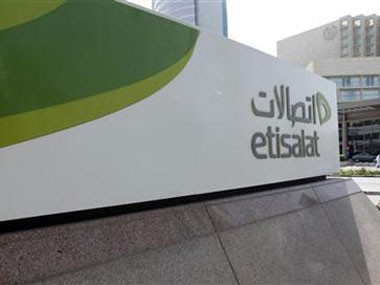Egypt’s President Abdel-Fattah Al-Sisi wants to modernise the country by improving the telecommunications infrastructure, establishing smart cities, and enabling citizens to use digital services. “We are on the right path toward a digital society,” Al-Sisi stated at the Cairo International Exhibition and Conference on Telecommunication and Information Technology last December.
This month, Egypt hosted the second edition of the Financial Inclusion Global Initiative Symposium, which is organised by the International Telecommunication Union (ITU), jointly with the World Bank Group (WB) and the Committee on Payments and Market Infrastructures with the support of the Bill and Melinda Gates Foundation.
The country is one of three countries, alongside China and Mexico, to receive technical assistance from the Financial Inclusion Global Initiative community to promote digital financial inclusion.
Daily News Egypt interviewed Bilel Jamoussi, the Chief of the study groups department in the Telecommunication Standardization Bureau at the ITU, and Amr Moussa, the minister advisor for digital economy at the Egyptian Ministry of Communications and Information Technology (MCIT), as well as Ehab Nasr, the head of payment systems at Central Bank of Egypt (CBE), attempting to get a clear picture of how Egypt’s adoption of cashless payment will proceed.
Three challenges face adoption of e-payments: ITU official
How does the ITU see the Egyptian government’s efforts to upgrade the IT services?
The ITU is proud that Egypt is one of the three countries we work together with in order to implement digital financial inclusion, the programme is under the supervision of the ITU, jointly with the WB, and with the support of the Bill and Melinda Gates Foundation.
We work with the National Telecom Regulatory Authority (NTRA), the MCIT, the CBE, and the Financial Regulatory Authority in order to find solutions for legislative and technical issues, so that the implementation of financial inclusion in Egypt happens faster and in a more comprehensive way.
Egypt Post plays a key role since it has the ability to reach all parts of the country, as it exists in all the Egyptian villages and in all regions. Additionally, there is mutual trust between the post’s employees and the community. This trust enables the digital financial inclusion become easier.
Today most of Egyptians have a mobile phone, even if it is a simple mobile phone. By using it, citizens can have an access to banking services through sending and receiving money and by paying for services. This is the objective of the digital financial inclusion in Egypt, China, and Mexico.

What are the challenges that could impede the implementation of the digital financial inclusion?
The first challenge is the legislation because the financial and technological sector are different sectors with different ministries. This occurs in all countries of the world and not only in Egypt, so there must be a constructive dialogue between the officials of the telecommunications sector and the banking sector in order to find solutions regarding the legislative and technical issues in order to find solutions for the Egyptian citizen.
On the technical aspect, there are three challenges. The first challenge is the acceptance of electronic payments, so the merchant and customer must have the tools which enable them to use digital payment rather than cash.
The second challenge is the presence of a digital identity, as we cannot talk about digital transactions without a digital identity, it is actually the cornerstone for building confidence in electronic financial transactions.
The third challenge is having a strong infrastructure of cybersecurity in order to encourage people to have confidence in digital financial transactions. The team which deals with this matter should have many protocols to be used to create secure transactions between the citizen, who uses the mobile phone, and the merchant.
Those are the three challenges, and we try to find solutions for each country which applied for financial coverage including Egypt, China, and Mexico.
What are the other programmes which the ITU is working on in Egypt?
One of the most important goals we have is to help facilitate communication in all countries. Today, 50% of the world’s citizens have access to the internet, and the other 50% need to have access as well. This is the most important concern for the ITU. Our duty is to connect citizens and enhance communication in all countries of the world.
Our second task is to build services such as financial services, health services, as well as transport services, those are the ITU’s strategic goals.
Some people have concerns that the use of technology will increase unemployment, what is your opinion on that matter?
The internet, mobile phones, and other technological tools are actually creating new jobs and new opportunities, and the investment in the ICT sector can result in 10 times higher profits. We can create job opportunities, and even export software services. I think this fear is subjective and incorrect. The world’s fastest growing countries have invested in the ICT sector.




